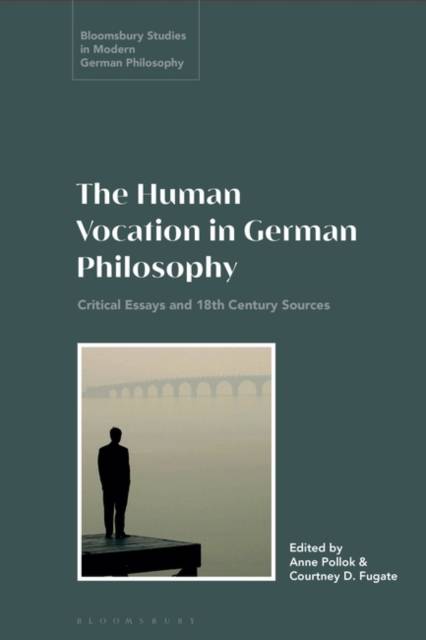
Bedankt voor het vertrouwen het afgelopen jaar! Om jou te bedanken bieden we GRATIS verzending (in België) aan op alles gedurende de hele maand januari.
- Afhalen na 1 uur in een winkel met voorraad
- In januari gratis thuislevering in België
- Ruim aanbod met 7 miljoen producten
Bedankt voor het vertrouwen het afgelopen jaar! Om jou te bedanken bieden we GRATIS verzending (in België) aan op alles gedurende de hele maand januari.
- Afhalen na 1 uur in een winkel met voorraad
- In januari gratis thuislevering in België
- Ruim aanbod met 7 miljoen producten
Zoeken
The Human Vocation in German Philosophy
Critical Essays and 18th Century Sources
€ 296,95
+ 593 punten
Omschrijving
In 18th-century Germany philosophers were occupied with questions of who we are and what we should be. Can the individual fulfill its vocation or is this possible only for humanity as a whole? Is significant progress towards perfection in any way possible for me or just for me as part of humanity? By following the origin and nature of these debates, this collection sheds light on the vocation of humanity in early German philosophy.
Featuring translations of Spalding's Contemplation on the Vocation of the Human Being in its first version from 1748 and an extended translation of Abbt's and Mendelssohn's epistolary discussion around the Doubtsand the Oracle from 1767, newly-commissioned chapters cover Johann Gottfried Herder's inherently cultural concept of the human being, Immanuel Kant's transformative interplay of moral and natural aspects, and the notion of metempsychosis in Fichte's work inspired by two neglected philosophers, Gotthold Ephraim Lessing and Johann Georg Schlosser. Opening further lines of inquiry, contributors address questions about the adaptations of Spalding's work that focus on the vocation of women as wife, mother or citizen.
Exploring the multitude of ways 18th-century German thinkers understand our position in the world, this volume captures major changes in metaphysics and anthropology and enriches current debates within modern philosophy.
Featuring translations of Spalding's Contemplation on the Vocation of the Human Being in its first version from 1748 and an extended translation of Abbt's and Mendelssohn's epistolary discussion around the Doubtsand the Oracle from 1767, newly-commissioned chapters cover Johann Gottfried Herder's inherently cultural concept of the human being, Immanuel Kant's transformative interplay of moral and natural aspects, and the notion of metempsychosis in Fichte's work inspired by two neglected philosophers, Gotthold Ephraim Lessing and Johann Georg Schlosser. Opening further lines of inquiry, contributors address questions about the adaptations of Spalding's work that focus on the vocation of women as wife, mother or citizen.
Exploring the multitude of ways 18th-century German thinkers understand our position in the world, this volume captures major changes in metaphysics and anthropology and enriches current debates within modern philosophy.
Specificaties
Betrokkenen
- Uitgeverij:
Inhoud
- Aantal bladzijden:
- 360
- Taal:
- Engels
- Reeks:
Eigenschappen
- Productcode (EAN):
- 9781350166073
- Verschijningsdatum:
- 23/02/2023
- Uitvoering:
- Hardcover
- Formaat:
- Genaaid
- Afmetingen:
- 156 mm x 234 mm
- Gewicht:
- 671 g

Alleen bij Standaard Boekhandel
+ 593 punten op je klantenkaart van Standaard Boekhandel
Beoordelingen
We publiceren alleen reviews die voldoen aan de voorwaarden voor reviews. Bekijk onze voorwaarden voor reviews.








